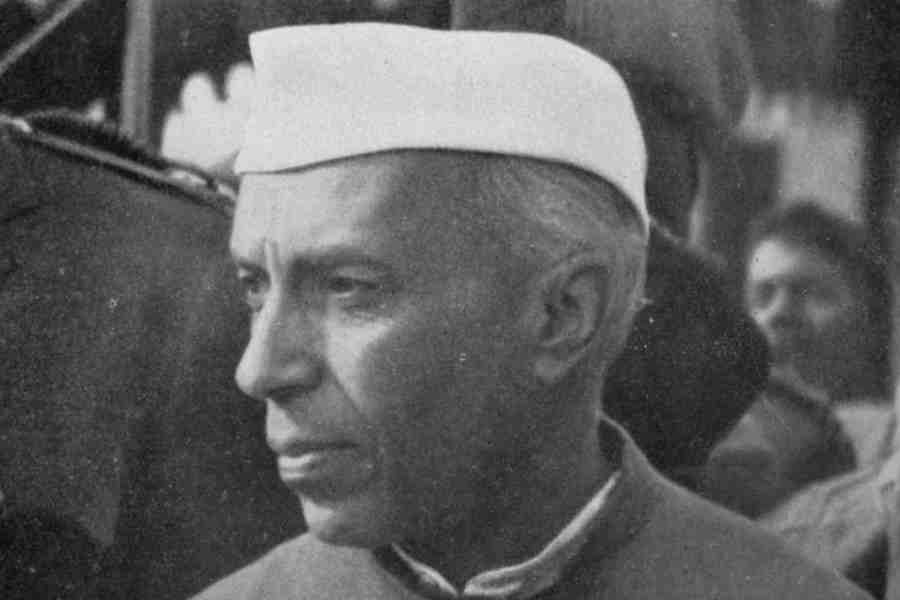Even by the eloquent standards of India’s external affairs minister, S. Jaishankar, the speech by the diplomat-turned-politician last week at a television channel’s enclave was packed with chutzpah. Jaishankar referenced correspondence between Jawaharlal Nehru and his colleagues, including Vallabhbhai Patel and Bhimrao Ambedkar, to argue that independent India’s first prime minister ignored saner advice on China to instead mistakenly seek stronger ties with Beijing. In particular, he said it was ironic that in the 1950s, “we spoiled our relationship with America because we were arguing on behalf of China.” The context: in 1950, the United States of America had offered to support a coup in the United Nations Security Council with the aim of getting India to replace the permanent seat held by Taiwan — at the time recognised as ‘China’ by the global body. Nehru famously rejected the offer and made clear that India instead believed that the seat should go to the People’s Republic of China — the communist government of the mainland that had come to power only months earlier. Critics of Nehru, including Jaishankar, argue that the refusal cost India an early position at the high table of global governance.
That China subsequently fought India in the 1962 war only compounds the notion that Nehru was naïve in his belief that New Delhi and Beijing could build trust. Nehru’s China policy, in turn, is often cited by his critics, especially in the ecosystem of the Bharatiya Janata Party, as evidence that Nehru’s overall foreign policy approach was flawed. Jaishankar described decades of adherence to the Nehruvian foreign policy doctrine as “cult worship”.
The legacy of no public figure should be exempt from scrutiny. But a selective and decontextualised look at the past is no substitute for a genuine analysis of what India under Nehru and subsequent governments got right and wrong. In a government where every act is credited only to Prime Minister Narendra Modi, ministers would do well to avoid speaking about cult worship.
Back to 1950 and China. A newly-independent India was bursting with the idealism of young nations keen to reshape the world. Like many countries that were gaining freedom from colonialism at the time, it was instinctively wary of trusting either of the two superpowers — the US and the Soviet Union — at the onset of the Cold War, while maintaining cordial relations with both. Instead, it focused on solidarity among what are today known as Global South nations. Any such effort could only succeed through cooperation between India and China. Indeed, India was among the first countries to recognise communist China.
Even if India had accepted the US offer to take up the Security Council seat that the UN, at its founding, had set aside for China, there is little evidence to suggest that the attempted putsch would have been successful. At the time, Soviet ties with communist China were strong, and Moscow — then, like now — had a veto. What is certain is that such a move by India would have destabilised New Delhi-Beijing ties a decade before they eventually ruptured. The US did not even recognise communist China as the legitimate ‘China’ until 1971. Aligning with the US position on China would have meant that New Delhi, too, would have had to pretend to wish away the reality of who actually controlled its giant neighbour.
This is not to say that Nehru and his team did not make mistakes in their dealings with China: the failures of the 1962 war alone, and the fact that Beijing continues to control Aksai Chin, are reminders of their blunders.
Yet every single Indian leader has given peace a chance with troublesome neighbours. Was Modi’s decision to share a swing with Xi Jinping in Ahmedabad only for a border incursion by the People’s Liberation Army days later? What about his surprise visit to Pakistan in 2015 which was followed by the Pathankot terrorist attack? Are these strategic failures? Perhaps. Or maybe they were risky but bold policy choices based on the mature understanding that hostility with neighbours is unsustainable in the long run.
If Modi deserves benefit of the doubt, so does Nehru.
Charu Sudan Kasturi is a senior journalist who writes on foreign policy and international relations











